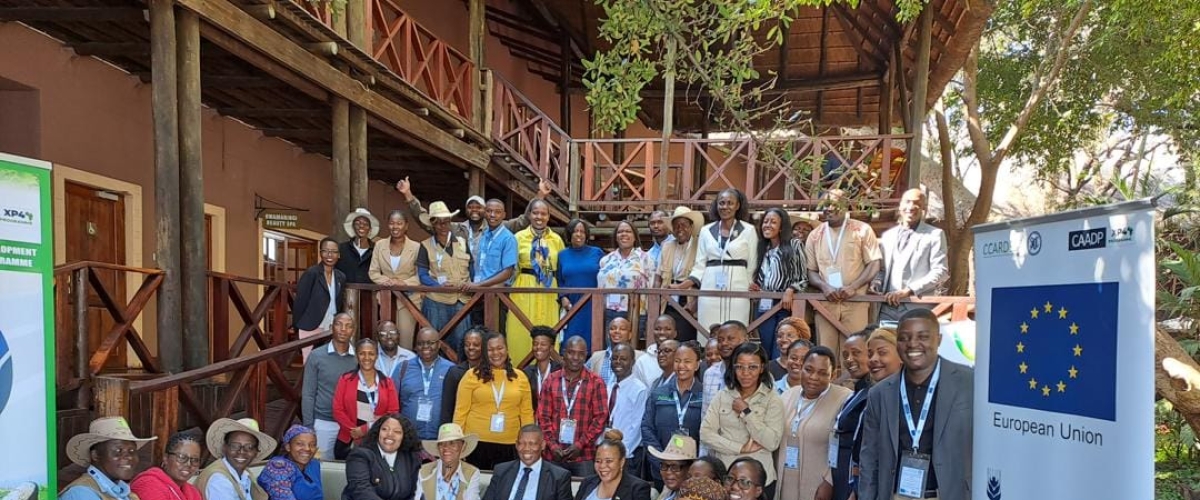
The economic growth of countries in the Southern African region is contending with several challenges, including the high unemployment rates, especially among the youth. This economic situation has been exacerbated by the impacts of COVID-19 and the ongoing global and regional conflicts. Recognizing the potential role of agriculture in contributing towards economic growth through job and business opportunities in its numerous value chains, the Centre for Coordination of Agricultural Research and Development for Southern Africa (CCARDESA) focused on empowering women and youth within this sector by capacitating them on how on take advantage of these untapped opportunities by learning from some of the successful enterprises from the regional countries. |At the recent symposium in Kasane, Botswana, organized in collaboration with the CAADP-XP4 program, the Accelerating Impacts of CGIAR Climate Research for Africa (AICCRA) project, and Botswana Farmers Association (BOFA), the spotlight was on knowledge sharing and exchange between women and youth in agriculture. The symposium aimed to facilitate the sharing of successful case studies of agricultural enterprises and the deployment of innovative practices, including preserving and utilizing indigenous seeds, integrating traditional crops and livestock into modern value chains, and implementing climate-smart agriculture techniques.
Mr. Samson Tshenyo, the Botswana Farmers Association Chairman, welcomed delegates from ten SADC Member States to the event. He emphasized the importance of learning and sharing knowledge to create lasting agricultural practices. His encouragement for the youth to cultivate low-maintenance cash crops, highlighting his success with safflower cultivation as an example, added a personal touch to the proceedings.
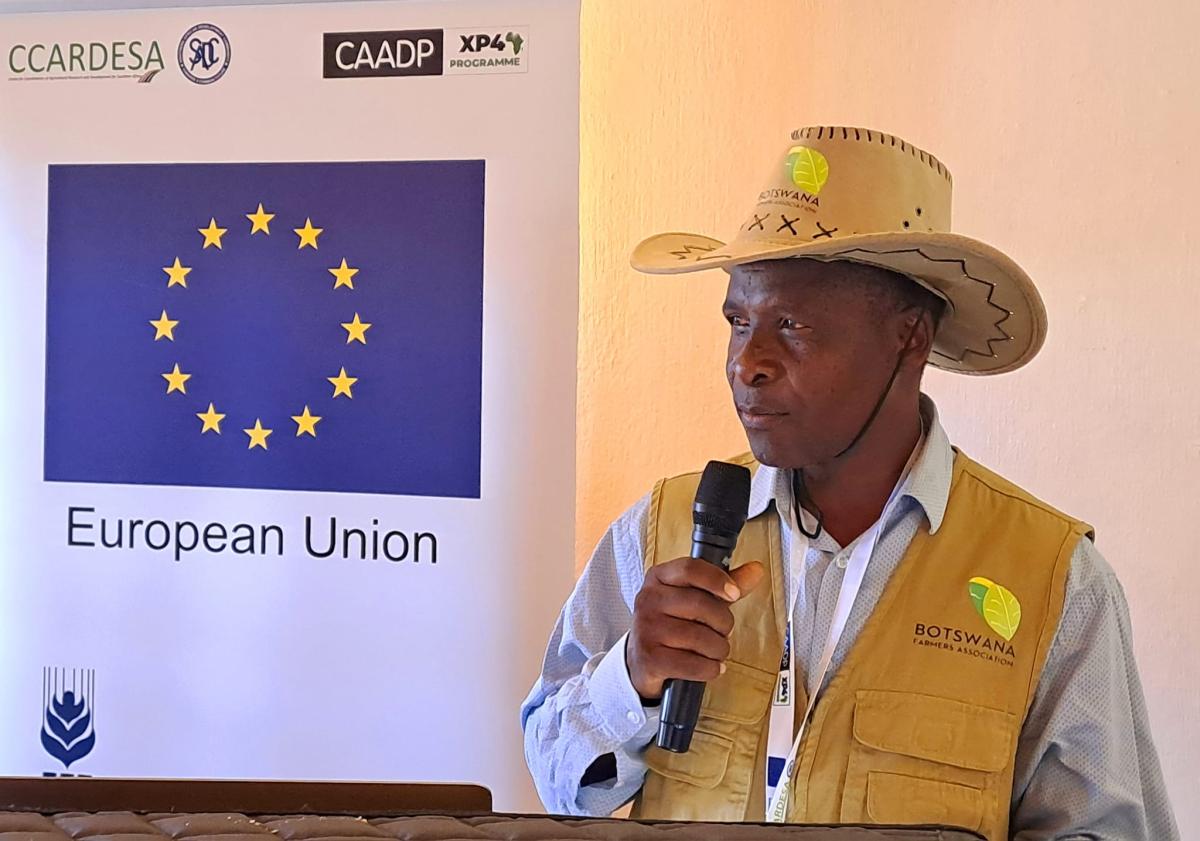
Dr. Baitsi Podisi, CAADP-XP4 Coordinator, spoke on behalf of the CCARDESA Executive Director, Prof. Cliff Dlamini, reaffirming CCARDESA's unwavering commitment to supporting measures aimed at empowering women and youth, who are the backbone of agriculture in the region. This strong commitment resonated with the audience, as it highlighted the organization's mission and its dedication to the sector. "Our region and countries have policies put in place to support agricultural development, empower women and youth, and facilitate cross-border trade," Dr. Podisi stated, stressing the need for continuous learning and addressing existing bottlenecks.
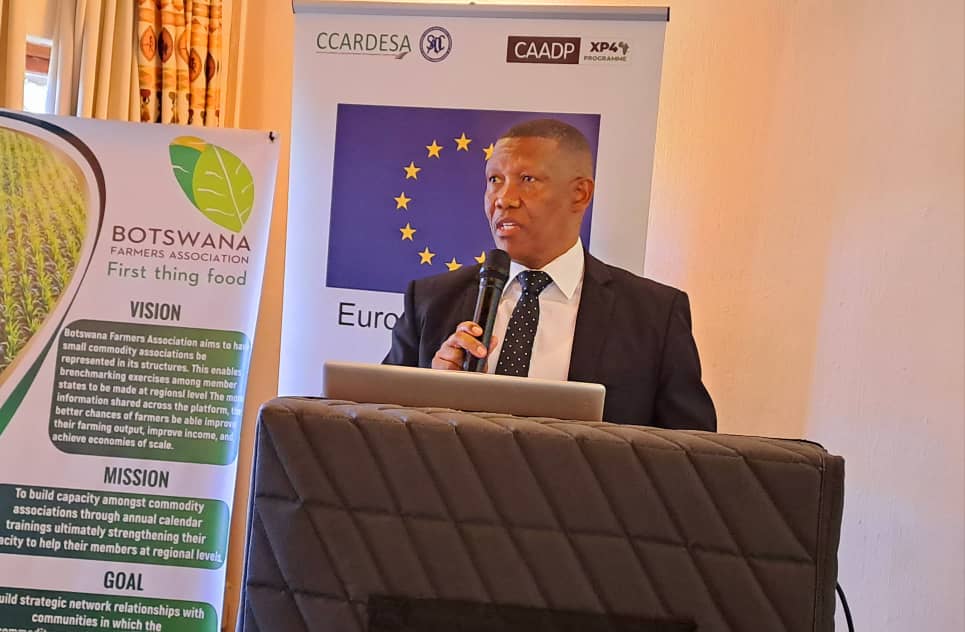
The keynote address by Ms. Maria Zaloumis, aka ZED Farmer, who cultivates over 500 hectares of land, highlighted the crucial issues facing women and youth in agriculture. Discussions ranged from preserving Indigenous seeds and integrating traditional livestock and crops into modern value chains to innovative techniques for rainwater harvesting and climate-smart agriculture.
Key sessions at the symposium covered utilizing affordable digital and precision farming tools, exploring opportunities in agroforestry, apiculture, and aquaculture, strategies for enhancing market access and value addition, and measures on improving access to project finance and export opportunities. These sessions were aimed to equip participants with the practical knowledge and skills necessary to drive innovation and sustainability in agricultural enterprises, ensuring that women and youth are empowered to succeed in this vital sector.
The symposium also covered aspects of mentorship and networking, with experienced mentors such as Ms Diana Sibanda, BOFA Chairperson, sharing her insights and strategies for effective mentorship and networking. Presenters also shared their corporate social responsibility efforts and mobilizing their communities within their projects’ catchment to embrace new environmentally friendly practices.
Notable legacy statements made at the symposium resonated deeply with participants. "Indigenous solutions, perfectly suited to our environments, offer sustainable ways to overcome challenges faced by women and youth," echoed Dr. Abel Sefasi from Malawi. Mr. Joshua Zinzombe from Zimbabwe remarked, "Farmers epitomize hard work, dedication, and resilience," highlighting the core values driving agricultural success.
Ms. Kushata Moesi from Botswana inspired the meeting by advising, "Women and youth are pivotal in driving agricultural success. Together, let's practice proper livestock management practices". Kleopas Shitaleni from Namibia also advised, "Don’t wait for large resources to start farming; begin with what you have." Mrs. Sarah Kachedwa from Malawi shared her commitment to applying new insights effectively, and Teopolina Hango emphasized the importance of deliberate choices in one's agricultural journey.
Ms. Felista Mpore from Tanzania underscored the significance of value addition in agriculture, insisted that “impossible is merely a word”, and Ms. Nancy Lebogang Makwinja from Botswana shared her educational journey in farming. Ms. Lumka Digashu from South Africa envisioned a long-term commitment to farming, while Ms. Mapontso Mosili from Lesotho stressed, "Choose quality or choose nothing."
Mr. Julius Butindi from Tanzania highlighted the importance of proper cashew production for value addition. Mr. Bene Baibene Nhambe from Mozambique reminded everyone of Aquaculture's economic viability and opportunities. Ms. Nkosephayo Manyatsi, from the kingdom of Eswatini, emphasized quality control and adherence to product and service standards. Mr. Abel Hangoma, from Zambia, preached the importance of organic methods in solving food security and wellness challenges.
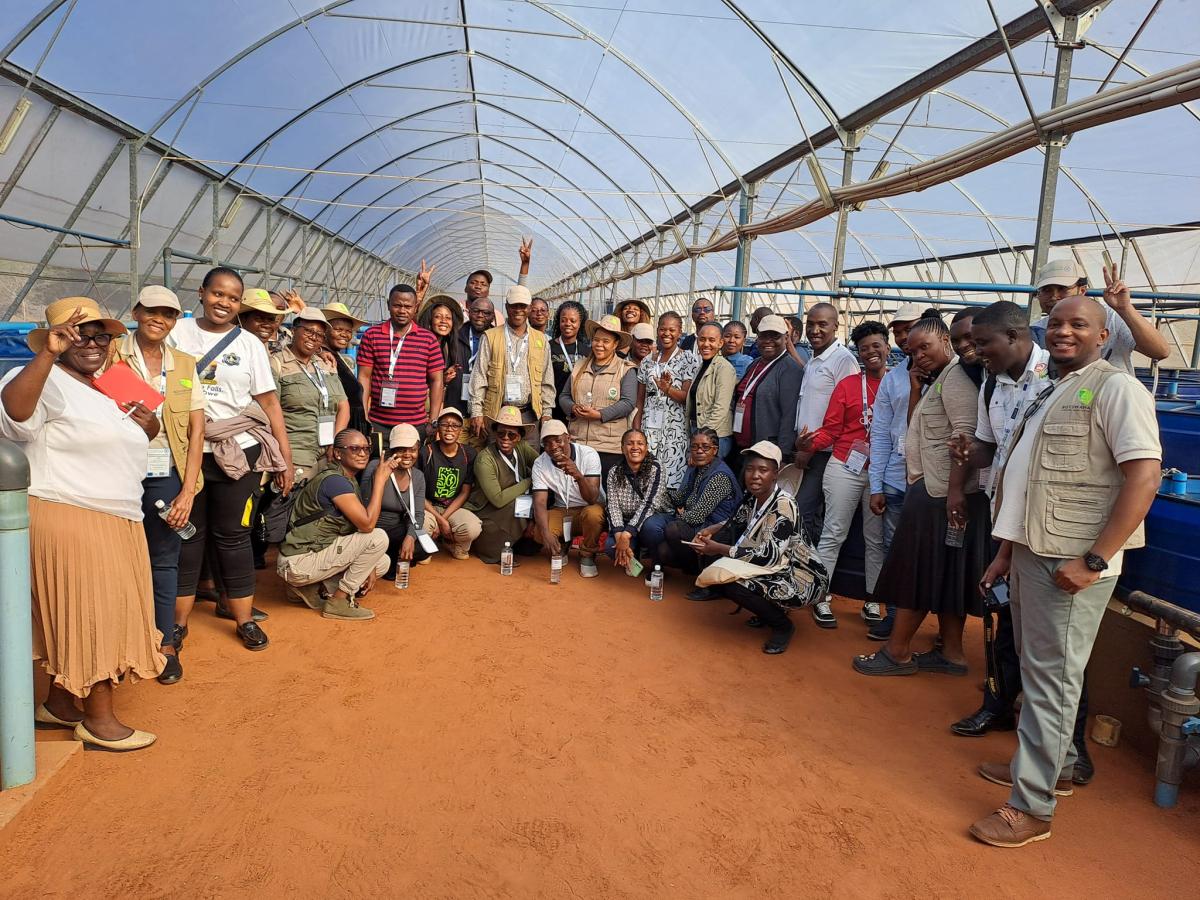
The symposium concluded with a practical field visit to Chobe Bream, a modern commercial aquaculture enterprise, where participants learned about aquaculture practices. This hands-on experience was a fitting end to an event that underscored the transformative potential of agriculture for youth and women in the region. Through collaboration, innovation, and the integration of traditional and modern practices, the symposium aimed at equipping participants with the tools and knowledge needed to drive sustainable agricultural enterprises and contribute towards addressing the pressing issue of regional youth unemployment.
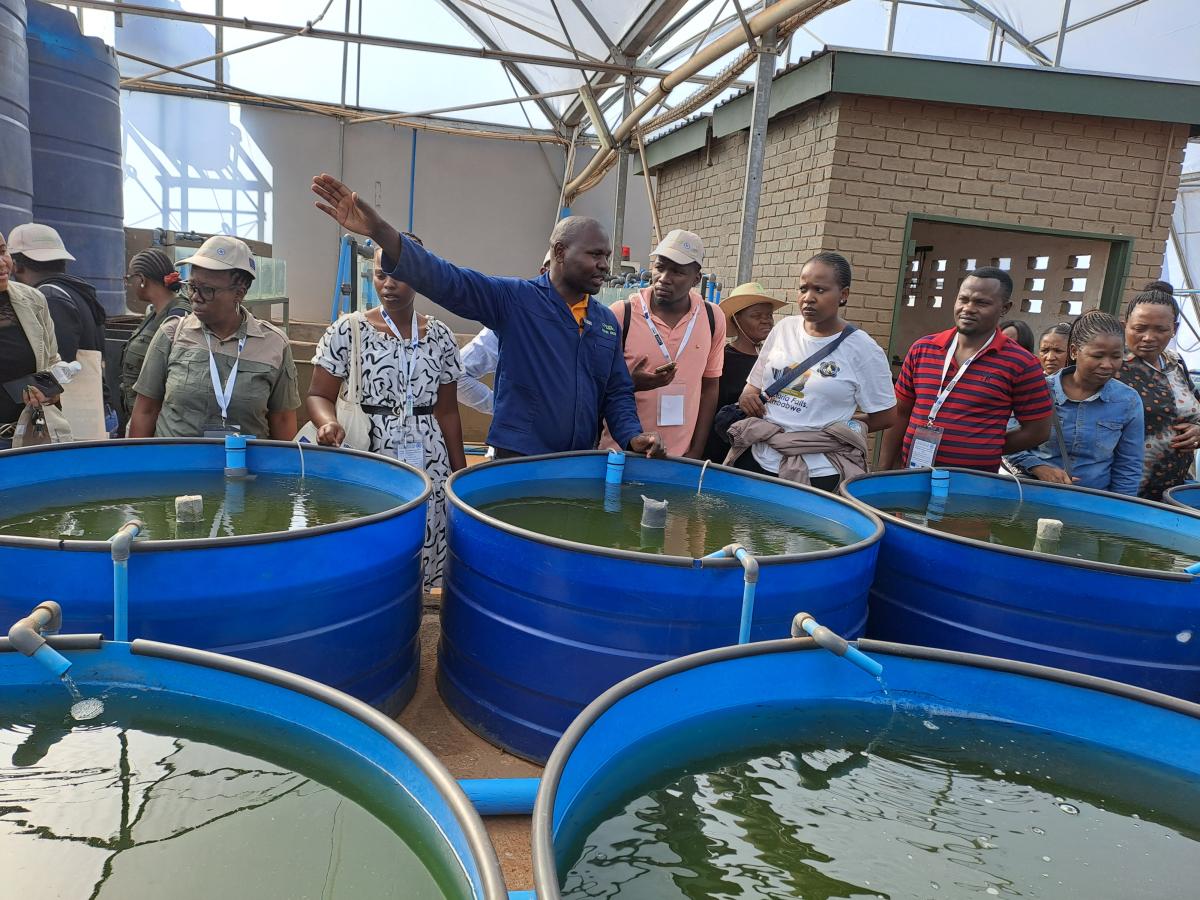
This event, which featured youth champions from different regional countries, was closed by representation from the Botswana Ministry of Agriculture and Food Security. It was implemented with support from the CAADP-XP4 and the AICCRA projects, which are funded respectively by the European Union and the World Bank. The participants left the symposium highly motivated to take their enterprises to new levels and to impact their communities.






